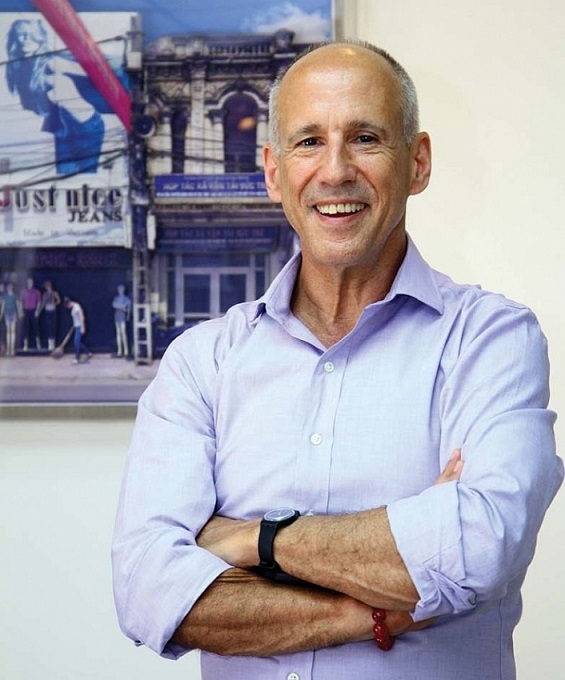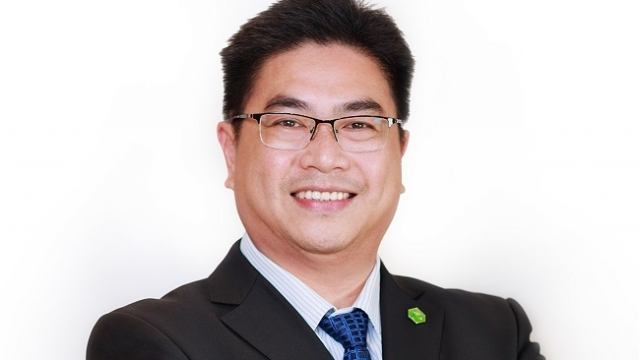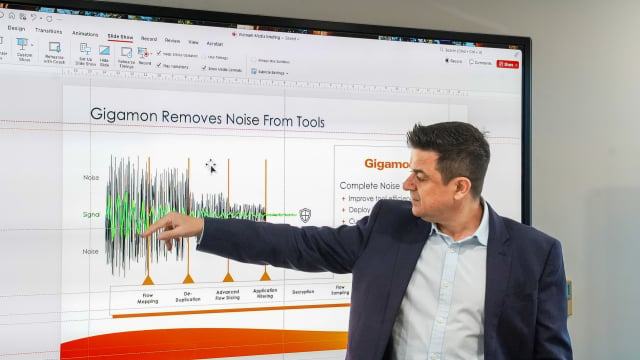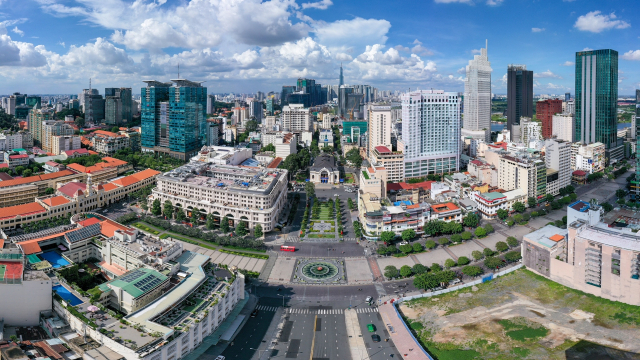Leader Talk
Private companies dominate real estate market, says veteran American investor
Indochina Capital CEO Peter Ryder talks about changes the private sector has brought to local real estate market during his 25 years of living in Vietnam.
How have you assessed the contribution of the private sector, especially foreign direct investment, to Vietnam’s real estate market?

Peter Ryder: An interesting trend in Vietnam, which I detect, is that the real estate development has long been dominated by the private sector. This is unlike many other industries in which the government still has very large involvement.
If you look at the history of real estate development over the past 25 years, we can see that Vietnam has really opened up in the post-doi moi era. In the immediate wake of this, major developers were foreign investors who typically set up joint ventures with domestic authorities. During this time, Indochina Capital began two joint ventures, one with Danang Tourism to develop the Furama Resort, and another with the Vietnam Father Land Front and Hongkong Land to develop 63 Ly Thai To in Hanoi.
In the last decade, the market has become dominated by domestic developers such as Vingroup, Sun Group, Novaland, and many other local private sector companies. There still has been an occasional joint venture involving foreign developers with state-owned enterprises, but if we look at the real estate market as a whole, we can see that at least 90 per cent can be attributed to the private sector. The contribution of the private sector to the country’s economy via real estate development has been tremendous.
Infrastructure system improvement is a key factor in helping to develop the real estate market. What are your evaluations on the efforts from the government to improve infrastructure in recent years, and what challenges does the government have to overcome?
Peter Ryder: Infrastructure is critical to real estate. Without basic public infrastructure (roads, bridges, ports, airports, mass transit systems, etc.), office buildings, retail centres, hotels, resorts. warehousesand logistic facilities can not be utilized to maximum benefit by users. Infrastructure improvement is also a very central piece of Vietnam’s economy.
One of my biggest concerns today is that Hanoi and Ho Chi Minh City are so far behind their respective infrastructure schedules, especially in regard to their mass transport systems. Traffic gridlock is a serious concern in these cities and it creates negative ripples throughout every sector of the economy.
Like many other sectors, the infrastructure system should also be opened up to the private sector under the form of build-transfer (BT), build-operate-transfer (BOT), and public private partnership (PPP) models.
I think that the government has not provided attractive enough incentives for foreign investors to take part in these types of investments. It would be fantastic if overseas investors could be attracted for infrastructure improvement under these models.
How do you assess the rise of foreign developers in the country so far? How have they been contributing their efforts to Vietnam’s real estate development?
Peter Ryder: Going back 15-20 years, the real estate market was dominated by foreign developers like Indochina Capital, Keppel Land and other regional (Asian) developers. Today however the market is dominated by local developers. For the most part, foreign groups continue to focus on high-end office, retail and hospitality properties, paying less attention to residential, whereas local groups focus on the full residential property, the full spectrum: high, muiddle and low-end.
Foreign developers have played an important role in Vietnam’s overall expansion by creating a number of iconic properties that have drawn attention to the country, particularly in the hospitality segment (e.g., The Nam Hai). Indochina Capital has always attempted to develop to the highest quality in terms of design, materials and construction. We continue this effort today through ICC-Kajima, our joint venture with Kajima, one of Japan’s largest contractors and the most active Japanese overseas developer.
We like to think we know not only how to build for profit but also to build to benefit the community, the greater society, through design creativity, attention to detail and environmental sensitivity. For example, our latest venture, Wink Hotels, aims to make a significant contribution to Vietnam’s exciting hospitality profile.
What are the key factors for Vietnam in attract increasing interest from foreign business into the real estate market, and how can the country utilise those advantages?
Peter Ryder: Real estate is essentially a key infrastructure sub-sector. More quality property is required as Vietnam’s economy expands, more office buildings, more serviced apartments, more hotels, more logistics and manufacturing facilities to accommodate increasing foreign demand. Basic infrastructure goes hand in hand with real estate development. Fast paced improvements in both are essential for a rapidly growing economy.
We have seen many foreign developers coming to Vietnam from Asian countries, but fewer from the EU. Can you analyse the reason why?
Peter Ryder: Real estate is the ultimate local business. To be successful requires a keen understanding of the locality in which you operate, the community, the economy, the government and the culture of the local operating environment. Given the cultural similarities, Asian developers feel more at home in Vietnam than do European or North American parties. Thus, on the foreign side, real estate in Vietnam is dominated by Japanese, Korean, Singaporean, Chinese and other East Asian players.
Which countries and segmments are now most interested in Vietnam?
Peter Ryder: Japan, South Korea, Singapore and China are the source of most foreign flows into real estate in Vietnam. In addition, there is increasing interest from Middle East groups. As noted earlier, developers and investors from these countries along with other foreign investors tend to focus on higher-end developments in the commercial and hospitality sectors.
There is some foreign investment in high-end residential but the overall apartment for-sale, particularly the middle and middle-low segments are dominated by local companies, who given Vietnam’s land law, have a built-in advantage.
Novaland rides tourism wave
Vietnam turns semiconductor vision into action
The global semiconductor industry is being reshaped by geopolitical tensions, shifting supply chains, and the surge of digital technologies.
Cutting red tape in APA approvals to speed up tax negotiations
The change in APA approval authority is expected to shorten processing time and enhance business proactiveness in international tax negotiations.
Enterprise cybersecurity is under threat from the inside
As hybrid cloud systems grow more complex, Vietnamese enterprises are struggling to detect cybersecurity threats moving laterally within their own networks.
Breakthrough for the international financial center ambition
The submission of the draft resolution on Vietnam’s international financial center to the National Assembly heralds a new developmental era for the country.
How leadership philosophy redefines hospitality in Nha Trang
More than just running a 5-star resort, Kristian Petersen is redefining the art of hospitality with a humane and sustainable leadership philosophy.
When organic becomes an inspiring wellbeing lifestyle
For Tyna Huynh, co-founder of Drinkizz, organic is not just a food choice but a way of life that fosters a deep connection between people, nature and community.

































![[Hỏi đáp] Phí ship và phí sàn TMĐT có tính thuế không?](https://t.ex-cdn.com/theleader.vn/192w/files/news/2025/12/03/khai-thue-ho-kinh-doanh-1142.jpg)
![[Hỏi đáp] Thấy gì từ động thái miễn lệ phí môn bài từ 2026?](https://t.ex-cdn.com/theleader.vn/192w/files/news/2025/12/03/ke-khai-thue-ho-kinh-doanh-phi-mon-bai-1708.jpg)







